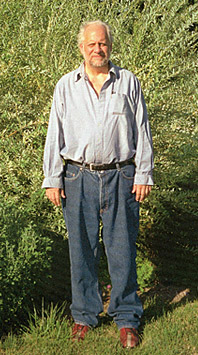How We Garden
It’s not a coincidence that people between the ages of 40 and 70 years comprise 90% of gardeners. Gardening takes—and gives—time. Time spent, invested, and enjoyed. Like a house, a garden is meant to be inhabited. Hours savored, not minutes; weeks satisfied, not days; years fulfilled, not months. To garden is to live. The origin of the word, “season”, is “the time to sow seeds”, from which the meaning led to a general period of time within a year. Folks who have the most time to garden are today’s boomers, whose first members, born in 1946, have entered their 60s, the gardener’s most dedicated decade. Their largest segment is entering their 50s, the most fulsome decade of entry to the pastime. And since, lately, a popular saying goes, “Forty is the new sixty”, it follows that the relaxed generation of early 1960s babies should be gardening in even greater numbers. And the facts—our data at Heronswood, The Cook’s Garden and Burpee—prove it. The percentage of our customers in their 40s has grown (pardon the pun) from 15 to 25% over the last 10 years—a remarkable rise in youthful enthusiasm, helped along by the popularity of the fitness movement, as well as the advances in gerontology, during the same period. Our overall numbers are rising—even of gardeners in their 80s—and yet gardening is gaining ground rapidly also among younger adherents. Interestingly, the types of flowers, vegetables, perennials and herbs have remained remarkably stable and consistent for all age groups. The “news” is the exception to the rule. Gardeners are creatures of habit or, more precisely, practitioners of tradition. They get into a groove and stay there. With its vast array of unique plants, shrubs and trees, Heronswood lays down new grooves for the beginning—as well as the adventurous—gardener.Gardening is both taught and learned: no one is born gardening. However, the basics require only a year to learn—one complete two-to-four season gardening cycle. There is no better program available than the Master Gardeners, a loosely confederated organization, not widely known but soon to be, since the demographic trends are definitely in its favor. It is appropriately decentralized, since “all gardening is local”, to paraphrase Tip O’Neill. And, as with politics, you get out of gardening what you put into it. It’s an active hobby—you have to “do it”. Like with a pet, don’t start a garden without careful consideration of the duties involved. It is not a coincidence that the basis of Judaism, and then indirectly Christianity and Islam, is a series of instructions about the care of the land, expanded into a discussion of rules, regulations and codes of family and community behavior, known as the Mishnah. To live is to garden.
When I bought my first large land parcel and started farming trees, I thought I knew what I was doing, but I really didn’t. I learned from experience and episodic lessons of trial and error. Lots of dead trees, confused farm managers and wasted money. Yet, ultimately, it was worth every penny, because I learned the ropes. I didn’t have the luxury of a teacher, or the obligations of a family, to test and shape me more quickly. However, I could have used a few chapters of a bible. I could have prepared myself better. You can always prepare better. Poor planning is the greatest cause of mistakes.
The tropical Chinese—along their southern coastline and in island communities like Taiwan and Borneo—are fantastic planners. Farmers can easily fit five cropping seasons into a year there. They’ve become not only skillful growers (it’s one of their highest ranking professions) but also excellent plant breeders, legendary for developing cultivars that mature quickly, both to beat the odds of potential drought and to feed an ever-expanding population. By the 18th century the mainland Chinese census was already well over three times that of Europe. Comparable to a priesthood, an apprenticeship to become a farmer in China takes a decade. It is easier to become a college professor.
